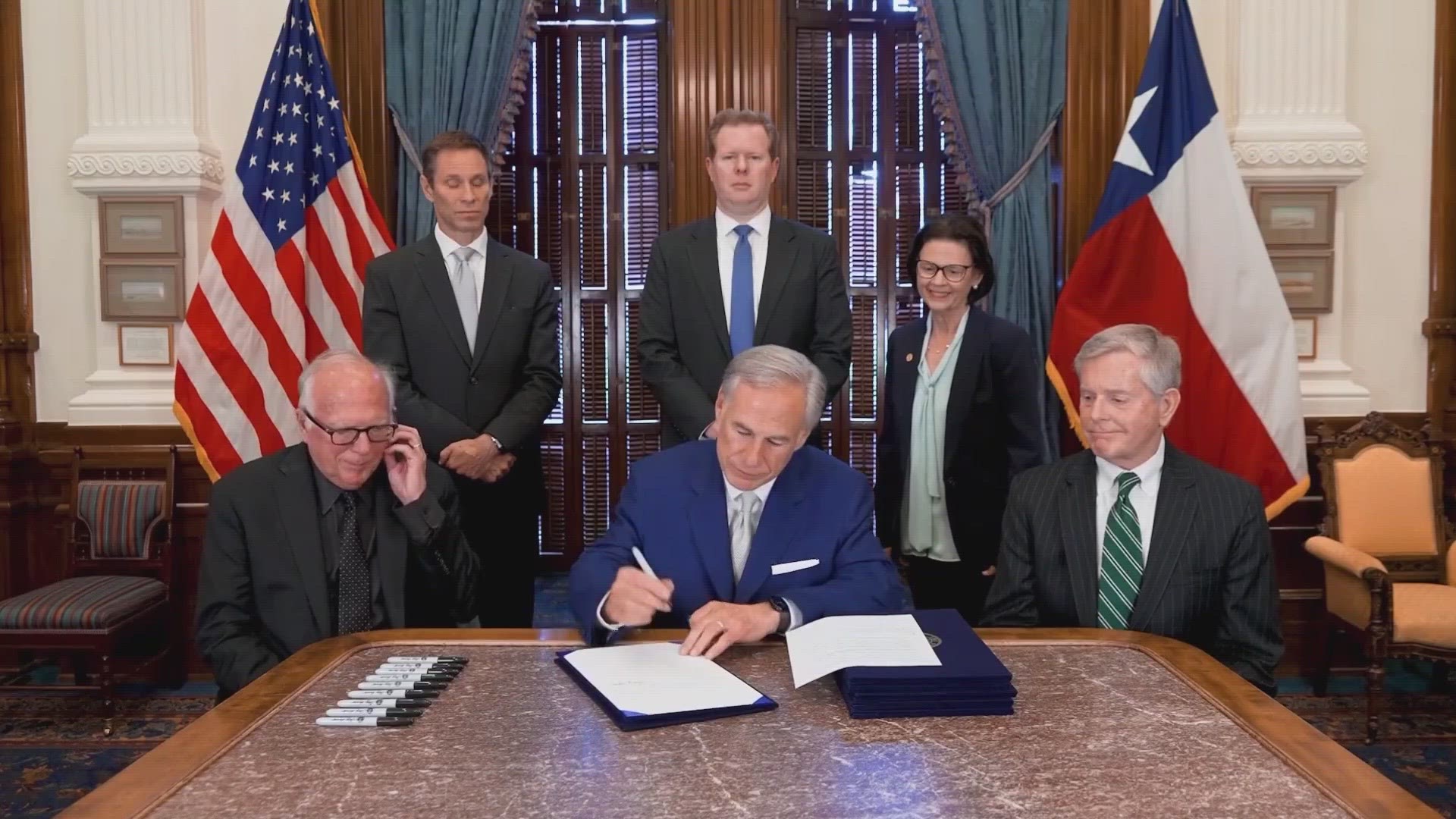SAN ANTONIO — Two years ago Public Utility Commission Chairman Peter Lake told lawmakers the Texas power market needed a complete overhaul to incentivize companies to build more reliable, or "dispatchable", power plants in Texas. The main mechanism of that overhaul is now signed into law...sort of.
"We are not tweaking on the edges, or making marginal changes, we are taking a blank-slate approach for a full redesign of this market to drive reliability full stop," Lake told lawmakers in 2021.
Texas has seen consistent growth in wind generation over the last decade but hasn't seen a large "baseline" natural gas plant built since 2017. Wind turbine power is only available when the wind is blowing where as natural gas plants can turn on as long as they have fuel.
That promise was delivered slowly. The Public Utility Commission continued to work on the redesign throughout 2022 an initially said it would be ready in October. But as 2022 came to an end, that redesign still wasn't ready and lawmakers wanted to weigh in once again.
Lawmakers from both the House and Senate asked the Public Utility Commission to hold off on implementing the redesign on Dec. 5 of 2022 according to the Texas Tribune. The PUC did hold off and delayed enforcing any market changes until the end of the legislative session.
Finally, on Wednesday, Governor Greg Abbott signed HB 1500 which provided new guidelines for the final product.
That final product is called the "Performance credit mechanism." This would provide bonus payments to power generators such as natural gas plants that can turn on "on demand" and that can commit to be available when the Texas grid needs them most. The payments would only be provided when the power plants were online during tight grid conditions. Still, Michele Richmond told KENS 5 in early May multiple companies saw it as an incentive to build more plants because it would help ensure they made a profit.
"The performance credit mechanism has actually seen almost 5000 megawatts of new gas generation investment announced. It's the only thing that has garnered investment, and the legislature doesn't need to pass a single bill to more forward," Richmond said.
That said, the Texas Legislature did pass HB 1500 and just two weeks before the legislative session ended the Senate added a variety of amendments which placed additional requirements on the Performance credit mechanism plan. The Governor signed the bill into law with those changes.
As of Wednesday, when this story aired, the changes were so new that Richmond wasn't able to comment on the end result of the bill.
Companies such as WattBridge, Calpine, and The Lower Colorado River Authority had already announced potential new projects prior to May 6.
“We are encouraged that the PUC has laid the foundation to ensure Texas maintains a reliable power supply through market-based mechanisms, and we are excited to move forward with projects that will deliver on that mission. We look forward to the PUC’s final actions,” said Caleb Stephenson, Executive Vice President of Commercial Operations of Calpine, in April. “Our hope is that the legislature will respect the regulatory certainty offered by the PUC and avoid discriminatory programs or direct government procurement that would undermine competition in Texas.”
The final version of HB 1500 would add more than a dozen guidelines to the mechanism. Experts are reviewing the legislation now to see how rules affect proposed projects.
"It establishes guardrails for the performance credit mechanism," Governor Abbott said before signing the bill.
Abbott also signed SB 2627 into law as well as three other bills designed to increase grid reliability.
SB 2627 is specifically designed to bring more reliable power to Texas by providing up to $10 billion in loans and grants to incentivize the construction and maintenance or reliable power plants. The bill would specifically provide low-interest loans for up to 10,000 megawatts of power generation and would provide for completion bonus payments as well.
"It provides completion bonuses to incentivize new dispatchable generation be built as quickly as possible," Abbott said.
Richmond previously told KENS 5 a baseline power plant can take between two-and-a-half and four years told build.

